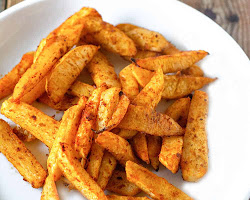Papaya seeds are small, black seeds that are found in the center of the papaya fruit. They are often discarded, but they are actually edible and have a number of health benefits.
Here are 6 health benefits of papaya seeds:
- Digestive health: Papaya seeds contain papain, an enzyme that helps to break down proteins. This can help to improve digestion and reduce symptoms of indigestion, bloating, and constipation.
- Weight loss: Papaya seeds are a good source of fiber, which can help you feel full and satisfied after eating. This can help you to eat less calories and lose weight.
- Heart health: Papaya seeds contain antioxidants that can help to protect your heart against damage from free radicals. They also contain magnesium, a mineral that is important for heart health.
- Anti-cancer properties: Papaya seeds contain compounds that have been shown to have anti-cancer properties. These compounds can help to prevent the growth and spread of cancer cells.
- Skin health: Papaya seeds can be used to make a facial mask that can help to improve the appearance of your skin. The mask can help to reduce acne, wrinkles, and dark spots.
- Immunity boost: Papaya seeds are a good source of vitamin C, which is an important nutrient for the immune system. Vitamin C helps to protect your body against infection and disease.
It is important to note that papaya seeds can have side effects in some people. If you experience any side effects, such as nausea, vomiting, or diarrhea, stop taking papaya seeds and talk to your doctor.
To consume papaya seeds, you can simply swallow them whole or grind them into a powder. You can also add them to smoothies, yogurt, or salads.
The recommended daily intake of papaya seeds is 1 teaspoon. However, it is important to start with a small amount and gradually increase the amount as needed.
If you are pregnant or breastfeeding, it is best to consult with your doctor before consuming papaya seeds..
Papaya seeds offer various health benefits and can be consumed for their nutritional value. They are rich in proteins, healthy fats, fiber, and vitamins. Consuming papaya seeds may aid in improving gut health, supporting heart health, and assisting in weight and cholesterol management[1]. These seeds also contain compounds like polyphenols and flavonoids, which contribute to their potential health benefits[7][12]. Moreover, papaya seeds are edible and can be included in the diet to support digestion, liver health, and immune system function[9]. Some studies suggest that these seeds contain oleic acid and other healthy acids that may help in reducing bad cholesterol levels and maintaining healthy cholesterol levels[11]. Additionally, papaya seeds contain polyphenols, which are strong antioxidants that can potentially protect the body against certain forms of cancer[12]. Papaya seeds are available for purchase online through various platforms, including Bighaat and Amazon, and can be used for home gardening purposes as well[3][4]8. They come in different varieties, such as the Red Lady (F1) hybrid 786 papaya seeds[10]. When consuming papaya seeds, it's important to be aware of the recommended quantity and consult a healthcare professional if you have any concerns or specific health conditions.
1. What nutritional components do papaya seeds contain?
2. How can papaya seeds contribute to improving gut health?
3. What potential effects do papaya seeds have on heart health?
4. What are some of the reported health benefits of consuming papaya seeds?.jpg)
papaya seeds
















